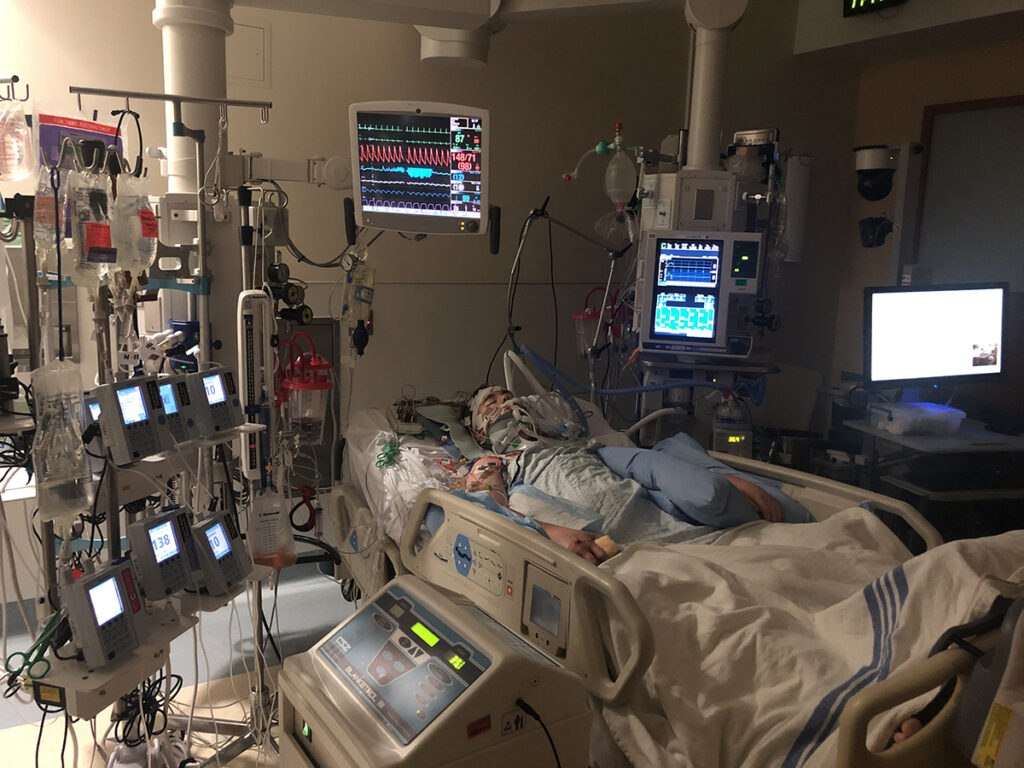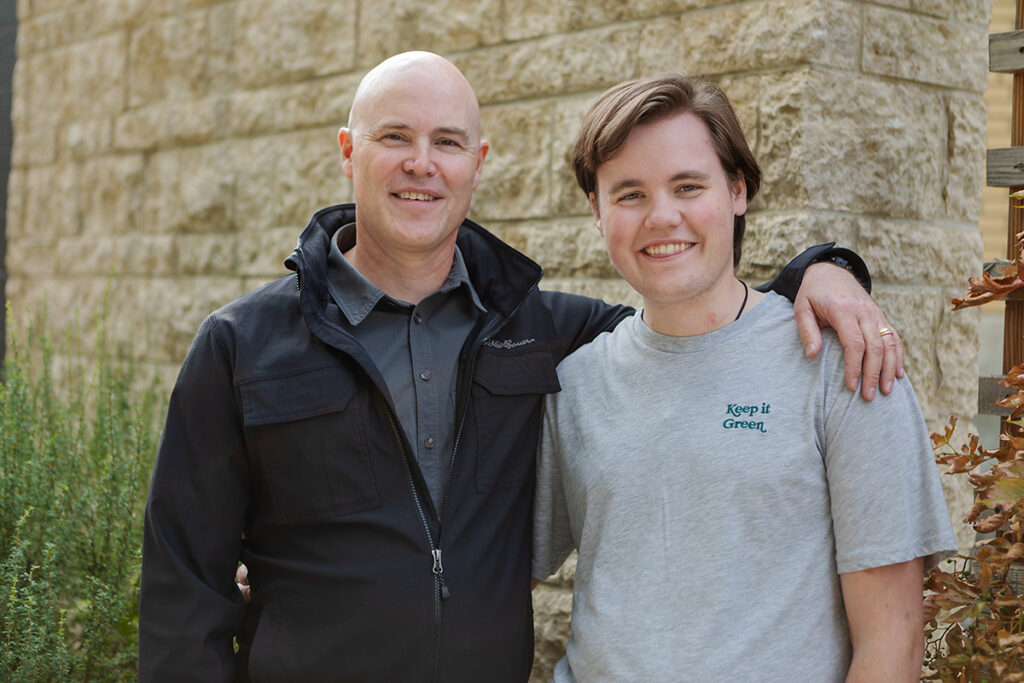
For Kael Bernard and his family, life could look a lot different following a 2019 car accident that left him in a coma with a severe, traumatic brain injury. For weeks his parents sat diligently at his side as Kael was connected to life-support with special monitors in his brain as it began to heal, uncertain of what the future would hold for their 17-year old son. The neurocritical care team worked to reduce the threat of ongoing brain damage that could leave Kael with life-altering and life-threatening outcomes.
“The care Kael received was the difference between what is and what could have been,” says Kael’s dad, Tim Bernard.
Following his discharge from the hospital, Kael graduated high school and is now in university. The road for Kael and his parents was not an easy one though. In the early hours and days following his accident, they were not sure whether Kael would live or die, or who he would be when he came out of his coma. This story thankfully has a happy ending.
Like Kael, more than 900 patients are admitted to Intensive Care Units (ICU) throughout Calgary and Southern Alberta each year because of life-threatening nervous system disorders, making up almost 20% of ICU admissions. These patients face severe brain, spinal cord, nerve and muscle injuries from trauma, stroke, heart attack, seizure, infection, and other conditions.
One of the Calgary Health Foundation’s newest priorities reflects that demand with a goal to raise $2.5M to expand neurocritical care specialty services, resulting in a 10 to 15% increase in the odds of survival among patients.

Increasing accessibility to neurocritical care, updating equipment, and developing clinical strategies to minimize neurologic injury are a few of the focus areas surrounding this lifesaving donor-funded project.
“Neurocritical care helps the sickest patients who have the most to lose, including their life, and if not their life, much of what they value,” explains Dr. Julie Kromm, a neurology and critical care physician at Foothills Medical Centre and Rockyview General Hospital. The call that Kael’s parents received is one that no parent should ever have to go through. But as Tim stresses, “It can happen to anyone. None of us are immune to injury, accidents or medical emergencies. We know that our son would not have the positive outcome and future before him without the care that he received at the Foothills Medical Centre ICU. Words cannot express our gratitude.”


